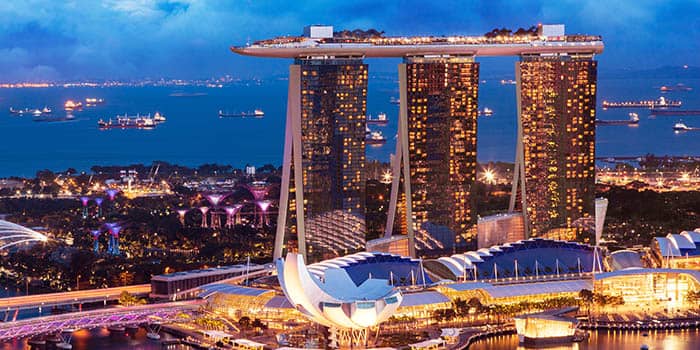- Casino
- Bitcoin Casinos
- Blacklist
- Real Money Casinos
- Reviews
- Strategy Guides
- Sweepstakes Casinos
- US Online Casinos
- Alabama
- Alaska
- Arizona
- Arkansas
- California
- Colorado
- Connecticut
- Delaware
- Georgia
- Florida
- Hawaii
- Idaho
- Illinois
- Indiana
- Iowa
- Kansas
- Kentucky
- Louisiana
- Maine
- Massachusetts
- Maryland
- Michigan
- Minnesota
- Mississippi
- Missouri
- Montana
- Nebraska
- Nevada
- New Hampshire
- New Jersey
- New Mexico
- New York
- North Carolina
- North Dakota
- Ohio
- Oklahoma
- Pennsylvania
- Texas
- Slots
- Free Slots
- 88 Fortune Frenzy
- A Christmas Carol
- Bandits and Bounties
- El Mariachi
- Fire & Steel
- Gifts from Santa
- It Came from Venus
- Legend of Azteca
- Legend of Horus
- Love Beach
- Mafia Family
- Ogre Empire
- Once Upon a Time
- Project Space
- Riches in the Rough
- Sheriff vs Bandits
- Take the Kingdom
- The Curious Machine
- The Defenders
- The Wild Show
- Viking Voyage
- Wilds of Fortune
- Ancient Slots
- Animal Slots
- Asian Slots
- 15 Dragon Pearls
- Buddha Fortune Hold and Win
- Cai Hong
- Dragon & Phoenix
- Dragon Kings
- Empire of Riches
- Journey to the West
- Lucky Macau
- Make You Rich
- Moon Sisters Hold and Win
- Mr. Macau
- Mythical Creatures
- Oriental Flower
- Prosperous Bloom
- Storm Lords
- Super Rich God Hold and Win
- Thai Blossoms
- Twin Dragons
- Classic Slots
- Food Slots
- Gold Slots
- Horror Slots
- Jungle Slots
- Magic Slots
- Sports Slots
- Slot Developers
- Free Slots
- Poker
- Sports
- Esports
Bloomberry Demands Documents That Could Confirm GGAM’s Alleged Frauds

Bloomberry Resorts, the Philippine gambling operator, has requested a federal judge to order a gaming company from the US to show documents that confirmed its alleged frauds.
Global Gaming Asset Management (GGAM) has sued Bloomberry after what a Singapore arbitrary panel has labelled a wrongfully terminated contract with the Las Vegas-based company back in 2016. Now, Bloomberry may need to pay $296 million.
To make things even more heated, Bloomberry accused GGAM of fraud by deliberately withholding vital documents with the goal of concealing illegal conduct during the arbitrary panel.
The Events that Led to the Lawsuit, Explained
GGAM signed a five-year contract in 2011 through which it managed the operation of Solaire Resort, a Manila resort under Bloomberry’s wing. Moreover, GGAM purchased an 8.7% stake in the project that cost $1.2 billion. The construction of Solaire Resort finished in 2013, and it proved to be an instant success.
However, Bloomberry decided to terminate the contract just six months after the resort’s grand opening. As GGAM reports, Bloomberry withheld millions of dollars in various fees and other considerations.
GGAM also alleges the Philippines’ second-richest person, Enrique Razon, of using his Philippine stock personal relationship to prevent GGAM from selling its Solaire interest. According to the company, the obstruction continues to the present day.
Bloomberry’s standpoint is totally different. It states that the reason why the company decided to terminate the partnership is that GGAM did not spend any material time in managing Solaire and, thus, failed to perform its obligations.
Razon’s company also states that it found out that its agreement with GGAM had been undermined by violations of both US and Philippine law after the arbitration tribunal decision.
Hence, GGAM is being accused by Bloomberry of concealing violations of the anti-bribery laws by the federation during their partnership. One of those accusations is using a Chinese government official that was the center of Bloomberry’s business strategy plan to exert influence over various commercial actors for the benefit of GGAM in ‘exchange for remuneration.
To make things even worse, Bloomberry also cited two $25,000 transfers that were sent from GGAM to Eric Chiu, its then-President. These transfers remain unexplained and, as Bloomberry said in court filings, they occurred at the same time when Chiu was meeting with the official in Macau.
Irregularities Were Discovered in 2017
These alleged irregularities were uncovered by Razon’s company in 2017 after the US Securities Exchange Commission (SEC) investigated the activities of Las Vegas Sands (LVS) in Macau back in the 2000s.
The main focus of SEC’s investigation was violations of the Foreign Corrupt Practices Act, in which Chiu, LVS executives and an LVS director were involved.
Eventually, LVS ended up paying a criminal penalty of $6.96 million to the US Department of Justice in a non-prosecution agreement. LVS admitted that some directors of the company failed to implement an accounting system to ensure payment legitimacy willingly and knowingly, as part of that agreement.
Additionally, LVS also admitted to paying $5.8 million to an unnamed businessman from China without any legitimate business person in the period from 2006 to 2009.
GGAM Was Founded By LVS Directors, Which Used the Same Strategy, According to Bloomberry
Chiu, the former president and COO, Bill Weidner, as well as other ex-directors of LVS, were actually the founders of GGAM. In court documents, Bloomberry accuses GGAM of bribing Chinese government officials while their partnership lasted.
However, all of this is yet to be proved in court. Bloomberry has stated that its defense relies heavily on factual questions that will be solved if the documents that it seeks from GGAM are provided. It also states that if these documents had been provided to the arbitration panel in Singapore, the original ruling would’ve been different.
As for GGAM, the company is asking the court to confirm and use the arbiters’ award against the US assets by Razon. According to GGAM, Razon’s US assets are concealed via a network of shell companies. The former residence of Steve Wynn at the Plaza, which was purchased by Razon for a price of $24.4 million, is also one of those assets, as court documents suggest.
Related Topics:
Filip Mishevski has been covering online gambling and cryptocurrencies for the past few years. He has written countless articles, how-to-guides, insights and news, and is keen on sharing his extensive knowledge in the aforementioned fields. He’s very passionate about soccer and MMA and is interested in how the online gambling industry will shape our future and thus, influence our lives.
Previous Article
Business
October 6, 2021














